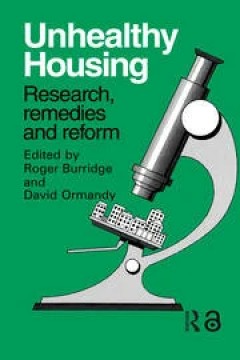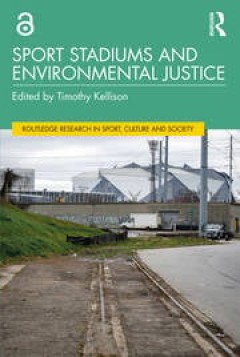Filter by

Contract law in the construction industry context
ABSTRACT This book chronicles how contract cases from the construction industry have influenced, solidified, refined and particularized U.S. contract law. The book’s central claim is that the construction industry experience has helped to contextualize U.S. contract law and, therefore, has encouraged the common law to be more receptive to flexible legal standards and practices and less const…
- Edition
- -
- ISBN/ISSN
- 9780429326912
- Collation
- 184 p
- Series Title
- -
- Call Number
- -

Creating Through Mind and Emotions
ABSTRACT The texts presented in Proportion Harmonies and Identities (PHI) Creating Through Mind and Emotions were compiled to establish a multidisciplinary platform for presenting, interacting, and disseminating research. This platform also aims to foster the awareness and discussion on Creating Through Mind and Emotions, focusing on different visions relevant to Architecture, Arts and Humanit…
- Edition
- -
- ISBN/ISSN
- 9780429299070
- Collation
- 532 p
- Series Title
- -
- Call Number
- -

Design with the desert: conservation and sustainable development
Typical development in the American Southwest often resulted in scraping the desert lands of the ancient living landscape, to be replaced with one that is human-made and dependent on a large consumption of energy and natural resources. This transdisciplinary book explores the natural and built environment of this desert region and introduces development tools for shaping its future in a more su…
- Edition
- -
- ISBN/ISSN
- 9780429111099
- Collation
- 620 p
- Series Title
- -
- Call Number
- 333 DES

The Circular Economy in Europe : Critical Perspectives on Policies and Imagin…
The Circular Economy in Europe presents an overview and a critical discussion on how circularity is conceived, imagined, and enacted in current EU policy-making. In 2013, the idea of a circular economy entered the stage of European policy-making in the efforts to reconcile environmental and economic policy objectives. In 2019 the European Commission declared in a press release that the Circular…
- Edition
- -
- ISBN/ISSN
- 9780429061028
- Collation
- 208 p
- Series Title
- -
- Call Number
- 330 KOV c

Urban Blue Spaces : Planning and Design for Water, Health and Well-Being
This book presents an evidence-based approach to landscape planning and design for urban blue spaces that maximises the benefits to human health and well-being while minimising the risks. Based on applied research and evidence from primary and secondary data sources stemming from the EU-funded BlueHealth project, the book presents nature-based solutions to promote sustainable and resilient citi…
- Edition
- -
- ISBN/ISSN
- 9780429056161
- Collation
- 506 p
- Series Title
- -
- Call Number
- 333 URB

Dilemmas of energy transitions in the global south: balancing urgency and jus…
This book explores how, in the wake of the Anthropocene, the growing call for urgent decarbonisation and accelerated energy transitions might have unintended consequences for energy poverty, justice and democracy, especially in the global South. Dilemmas of Energy Transitions in the Global South brings together theoretical and empirical contributions focused on rethinking energy transitions …
- Edition
- -
- ISBN/ISSN
- 9780367486457
- Collation
- 182 p
- Series Title
- -
- Call Number
- -

Bridge Maintenance, Safety, Management, Digitalization and Sustainability
- Edition
- -
- ISBN/ISSN
- -
- Collation
- -
- Series Title
- -
- Call Number
- -
- Edition
- -
- ISBN/ISSN
- -
- Collation
- -
- Series Title
- -
- Call Number
- -

European Foreign Policy in a Decarbonising World
Contributing to the emerging literature on the geopolitical and foreign policy implications of decarbonisation and energy transition processes, this book sheds light on the future of the European Union’s (EU) external relations under decarbonisation. Under the Paris Agreement on climate change, adopted in 2015, governments are committed to phasing out the emissions of carbon dioxide and ot…
- Edition
- -
- ISBN/ISSN
- -
- Collation
- -
- Series Title
- -
- Call Number
- -

Unhealthy Housing
Unhealthy Housing presents an analysis of the research into the health implications of housing and the significance for legal regulation of housing conditions. Key experts present short papers, together with an overview to give an evaluation of the significance of housing on the health of occupiers.
- Edition
- -
- ISBN/ISSN
- -
- Collation
- -
- Series Title
- -
- Call Number
- -

Sport Stadiums and Environmental Justice
ABSTRACT This book explores the local environmental impact of sports stadiums, and how that impact can disproportionately affect communities of color. Offering a series of review articles and global case studies, it illustrates what happens when sport organizations and other public and private stakeholders fail to factor environmental justice into their planning and operations processes. It…
- Edition
- -
- ISBN/ISSN
- 9781003262633
- Collation
- -
- Series Title
- -
- Call Number
- -
 Computer Science, Information & General Works
Computer Science, Information & General Works  Philosophy & Psychology
Philosophy & Psychology  Religion
Religion  Social Sciences
Social Sciences  Language
Language  Pure Science
Pure Science  Applied Sciences
Applied Sciences  Art & Recreation
Art & Recreation  Literature
Literature  History & Geography
History & Geography